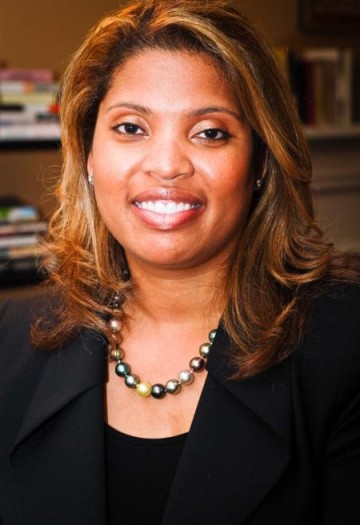
Over the course of the year I feel like I’m bombarded with various awareness campaigns — National Breast Cancer Awareness Month, Go Red for Women (Heart Disease), National Diabetes Awareness Month — and a host of other calls to take better care of yourself.
People go back and forth on social media platforms about when and where you should check your weight, are you eating organic food, where you should buy it, what qualifies as organic, causes to support, causes to rebuff to such an extent that it can be overwhelming. As a result, I often tune out of this information overload, seeking cover in not-so-overwhelming places.
This week, however when I saw that it was National Infertility Awareness Week, I stopped in my tracks and decided to come out from under the covers. Why is this week different?
Unfortunately, fertility isn’t often a topic women discuss until they learn it may be too late to become a mother.
Every woman I know has assumed that when she is “ready” to become a mother, she will. The reality is that may not actually be the case, because of a number of factors — age, timing, environment, prior health issues and a partner’s fertility status to name a few.
Sadly, it is not until many of us have decided that now is the time for pregnancy, yet pregnancy doesn’t occur as planned, that most woman learn that fertility indeed has an expiration date and it may have already passed. Exhibit A – me.
By every external measure, I am successful. I’m 41 with a great career, supportive friends and family and a significant other. I married my college sweetheart at 23 and after a divorce at 26 it never occurred to me that 15+ years later I would be single and childless. The fact that I never thought about whether or not I could have children is in fact why this week is so critical. Once my internal alarm went off and I decided that I was ready to have a child, you can imagine my shock in learning that I had several challenges that could prevent this from happening the old fashioned way.
As I listened to the doctor explain the many variables that made this process more complicated than anything I could have imagined, I kept thinking to myself, “Why didn’t I know this when I was 30?” I didn’t know that when I put my plan to have a family on the list for “later” that later may not ever come.
This is especially true for African-American women. At every age we have a higher instance of fibroids, endometriosis and other gynecological challenges which overall can significantly limit fertility. On top of that, we rarely discuss these issues publicly although black women experience infertility higher than our white counterparts.
Fertility for Colored Girls reports:
“Infertility among African American women is not only a silent and hidden problem in the African American Community, but one that continues to be on the rise.
According to Dr. Desiree McCarthy-Keith, a Reproductive Endocrinologist at Georgia Reproductive Specialists, research shows that among the 7.3 million women in the United States, approximately 11.5% of African American women experience a variety of infertility problems compared to 7% of white women.
Unfortunately, even though these alarming rates of infertility among African American women exist, studies show that women kissed by nature’s sun utilize fertility services less often and seek medical care too late.”
I didn’t know how many of my close friends had gynecological issues until I over shared my traumatic fertility appointment with my friends and colleagues. Only then did I hear about Susan’s crippling endometriosis and Mary’s multi-year fight to have children. What I realized when I walked into the waiting room for the infertility practice was that everyone literally looked like me. Honestly I was shattered. I erroneously thought infertility only happened to middle-class white woman, when the reality was the face of infertility looked like me.
There are many women who have made the conscious and purposeful decision not to have children and I applaud their decision. I also understand why women, particularly black and brown women, many of whom have not historically had a great relationship with the medical community, especially when it comes to reproductive rights, would want to shy away from seeking help and sorting through the myths about who is impacted by infertility. We’ve got to move beyond that and make sure we have the information that we need.
What is most important about this week is to ensure that women who have made the choice to have children, talk to their healthcare provider to better understand how the decisions they make now, will impact their ability to have children later.
This post was written by Yvonne Cowser Yancy. Follow her on Twitter @ycyancy.
For more information about infertility, visit Resolve.org or Fertility for Colored Girls or InfertilityEducation.org.
Like The Burton Wire on Facebook. Follow us on Twitter @TheBurtonWire.







